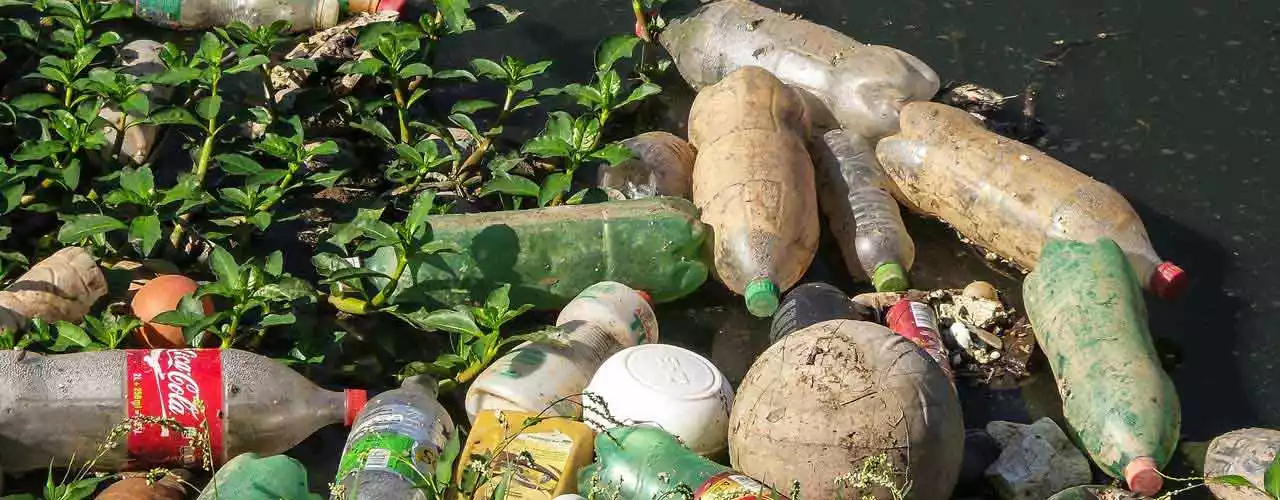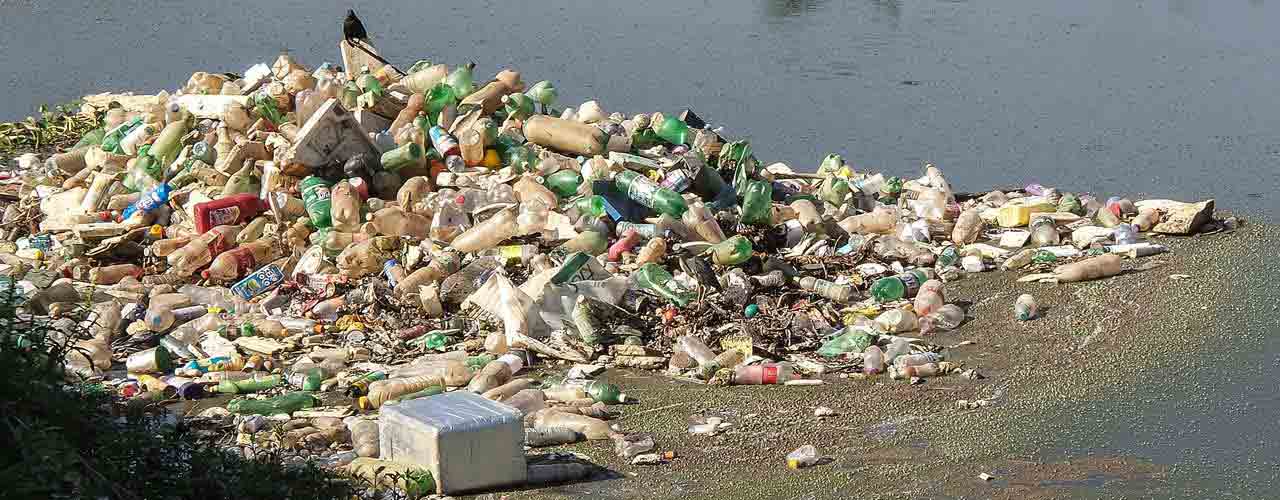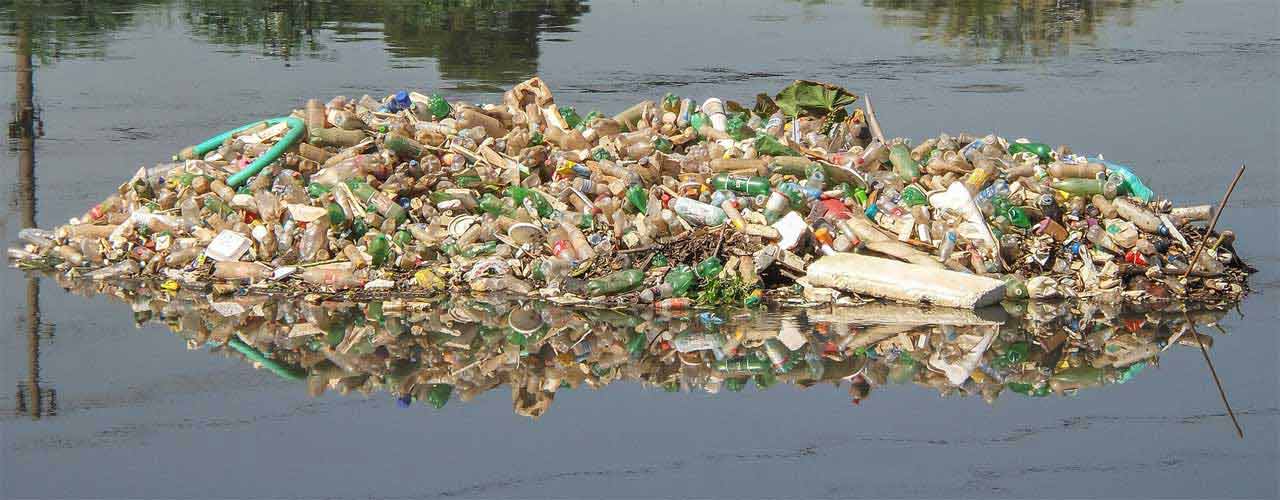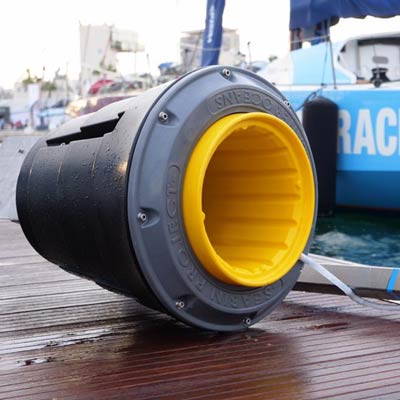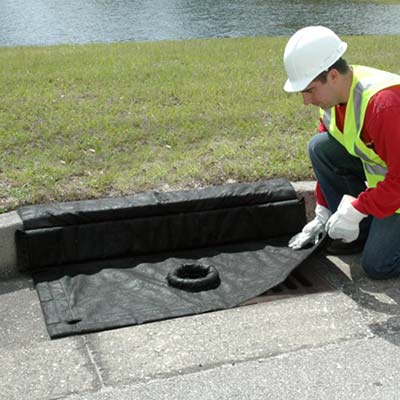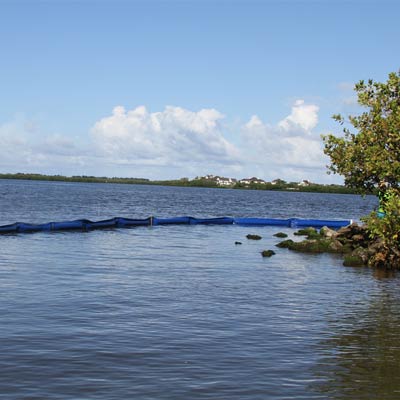Marine Plastic Pollution and Marine Debris
Plastic water pollution is a global scourge, affecting every continent on earth. Plastics are the most prevalent type of marine debris found in waterways today. These microplastics and macroplastics originate from larger pieces of plastic trash that have broken down or from manufactured microplastics called nurdles, used to make plastic products.
Most marine debris come from land sources through runoff, wind, human intervention, and other sources. This debris includes litter, trash, debris, and other plastics that enter a body of water by way of a storm drain or a marina and eventually makes its way into the ocean. However, plastic water pollution can be stopped before it reaches the open ocean and can be contained with a debris boom there as well.
Plastic Water Pollution Problems
- Large Debris: plastic bottles, plastic cutlery, plastic bags, fishing lures, nets, fishing lines
- Microplastics: cigarette butts, nurdles, broken plastics
Marine Plastic Pollution Solutions
Interested in learning more about marine plastic pollution solutions that help? Contact Us or Call us for more information at 1-863-261-8388.
Water Pollution from Plastic
Marine Plastic Pollution Solutions
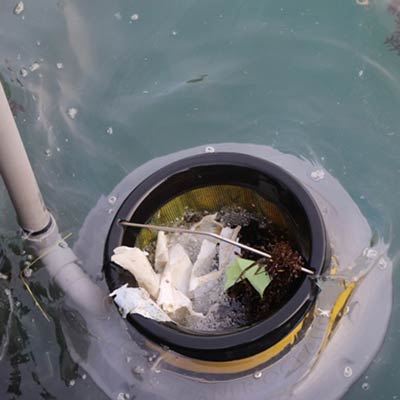
Plastic water pollution can look differently from water body to water body. Plastics can be large or small. Some marine debris can float and some can sink. Depending on your location and circumstances, controlling plastic water pollution will have different solutions. For instance, microplastics, plastic bottles, plastic bags, and cigarette butts often find their way into the ocean by way of storm drains and stormwater runoff. How will these be caught and properly recycled? Our collection of floating containment boom can contain marine plastic pollution. What types of boom do we carry? We carry debris boom, net boom, seaweed boom, aquatic plant boom, steel mesh boom, and more. The marine accessories we carry also ensure water pollution from plastic is properly contained. Read on to learn more about the Seabin—a floating trash skimmer that works in calm water locations to capture microplastics and pieces of debris.
Where Marine Plastic Pollution is Born
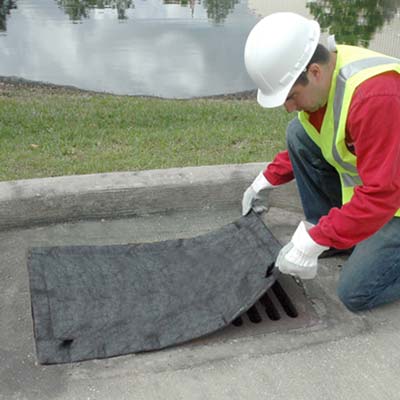
Most of the marine debris found in the ocean originated from a land source that found its way into the ocean and bodies of water. How does this marine plastic pollution occur and where does it come from? Storm drains make it easy for stormwater runoff, which carries debris and trash, to deposit plastic-filled water into large bodies of water and rivers that carry them into the ocean. Storm drains gobble this debris up, getting clogged with trash and litter as a result. The solution? Storm drain grate filters. Whether an over grate storm drain filter or an under grate catch basin filter, catching plastics and trash as they flow toward and into a storm drain is now an easy reality. Storm drain guards can even catch oils and sediments.
Microplastic Pollution in Water Bodies
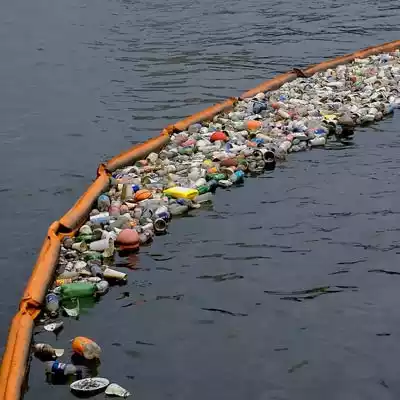
As plastic water pollution passes through storm drains it empties into other bodies of water and eventually marinas and harbors. Still, capturing this plastic pollution in water bodies is doable. Through the deployment of debris boom, large containment barriers that float on the surface of the water, you can corral and contain the floating marine debris that finds its way into the marina by way of boats or stormwater runoff. This water pollution due to plastic waste can then be skimmed from the surface of the water by hand or with a floating trash skimmer like the Seabin, a sleek, low-profile floating container that sucks polluted water from a marina or harbor, retaining it in a catch bag.
Robust Plastic Pollution in Waterbodies
When you have plastic water pollution that has large pieces, a steel mesh boom or a trash mesh boom, is a great investment for cleaner waters free from plastic pollution. Steel mesh booms are marine plastic pollution solutions best used in rivers, docks, intakes, dams, marinas, and harbors.
The problem of plastic water pollution doesn't just exist in isolated garbage patches that only consist of litter. Sometimes mats of seaweed can contain litter that floats into it and gets caught. Capturing this mixed floating plastics trash and sargassum with a seaweed boom or an aquatic plant boom will ensure that both litter and invasive aquatic plants are controlled. Deploy an impermeable debris boom to control plastic water pollution.

Plastic Water Pollution Frequently Asked Questions
What is plastic water pollution?
Plastic water pollution is the break down of pieces of plastic in water bodies that occur from land and marine sources. Land sources of marine debris come about from storm drains and stormwater runoff. Marine plastic pollution can occur in rivers, streams, lakes and the open oceans. For each of these locations different types of marine plastic pollution solutions will be necessary. Containment with debris boom, calm water debris boom, moving water debris boom, or fast water debris boom can be deployed for the containment, deflection, and harvesting of plastic pollution in water bodies. This water pollution due to plastic waste can also be extracted by use of a floating trash skimmer like the Seabin.
How can we fight plastic water pollution?
Once we are aware of where plastic water pollution and marine debris comes from, we can begin to understand our role in stopping the onslaught of water pollution from plastic. Storm drain filters can keep litter and plastics out of storm drain catch basins. Floating trash skimmers, like the Seabin, can extract small items like cigarette butts or microplastics from calm water locations. Robust debris booms made for various site conditions, contain floating plastic trash. With these methods, we can begin to gather up and recycle the plastic pollution in water bodies around the globe.
Our debris boom are made for locations with different levels of water activity. We carry calm water boom, moving water boom, and fast water boom. For more information on what kind of debris boom is right for your location, contact our product specialists at 1-863-261-8388.

